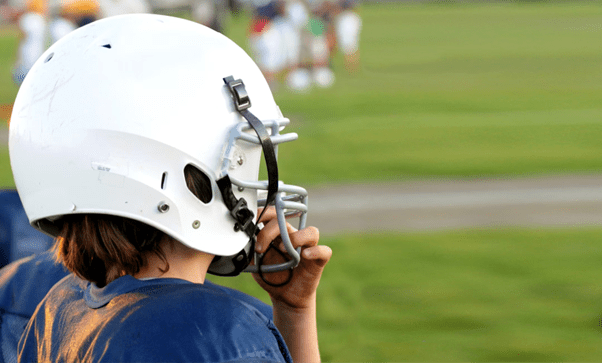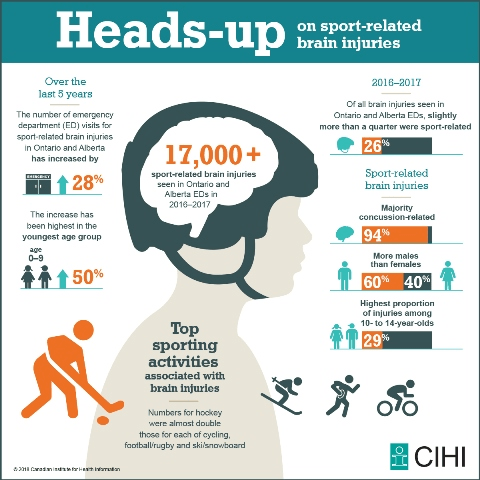Aug 09, 2024 in News Legal News
Legal News: Concussion Safety in Summer Sports Camps: Essential Tips for Parents
 Source: Unsplash
Source: Unsplash Concussions are a significant concern, especially in pediatric trauma. Traumatic brain injury (TBI) is the leading cause of trauma-related death and disability among children, with concussions accounting for 80% to 90% of all TBIs.
An estimated 200,000 concussions occur annually in Canada, predominantly affecting children and youth. Understanding and preventing concussions is key to ensuring the safety and well-being of young athletes in summer sports camps, say our brain injury lawyers.
What is a Concussion?
A concussion is a form of brain injury typically resulting from a hit to the head, neck, face, or body. This impact causes the brain to move within the skull, potentially leading to brain injury. Even without losing consciousness, a person can still suffer from a concussion, which can alter their thinking and feeling.
It's vital to seek medical attention if you suspect a concussion and to have someone monitor your child for a few days post-injury, as symptoms can take time to manifest. Recovery times can vary. Recovery times for concussions can range anywhere from 10 days to 4 weeks; however, children take longer to recover from concussions.
Recognizing the symptoms of a concussion is essential for timely intervention and care. Symptoms can vary widely and may affect the body, thinking, emotions, and sleep. Some common symptoms are:
- Dizziness
- Headache
- Nausea or vomiting
- Pressure in the head
- Confusion
- Sleepiness
- Irritability
- Increased emotional sensitivity
- Difficulty falling asleep
- Excessive sleepiness
Read More - Inflation is Eating into Long-Term Disability Payments: Here's What You Should Do
How Can Your Child Suffer a Concussion at Summer Camp?
 Source: Hospital News
Source: Hospital News Here are some common scenarios where your child might suffer a concussion at summer camp:
- Sports and physical activities - Contact sports such as soccer, basketball, and football, as well as activities like skateboarding and biking, can lead to collisions or falls that may result in a concussion.
- Recreational play - Activities such as playground games, climbing, or even roughhousing with peers can cause accidental hits to the head, neck, or body.
- Water activities - Diving, swimming, or water sports can sometimes lead to impacts with hard surfaces like pool edges or diving boards.
- Obstacle courses and adventure games - Many camps include obstacle courses or adventure-based activities that involve climbing, jumping, and other physical challenges where falls and collisions are possible.
- Team-building exercises - Group activities designed to build teamwork and cooperation can sometimes involve physical contact, leading to accidental injuries.
- Accidents and falls - General accidents, such as slipping on wet surfaces, tripping over obstacles, or falling from a height, are also common causes of concussions.
- Horseback riding and other animal activities - Riding horses or interacting with large animals can lead to falls or being accidentally kicked or struck.
Rowan’s Day Reminds Us of the Importance of Concussion Safety
Unfortunately, it took the passing of Rowan Stringer for concussion safety to enter the mainstream. Rowan passed away at the age of 17 after experiencing multiple concussions in the same week without informing her parents or coaches.
Just four days before her fatal injury, Rowan was tackled during a rugby match and landed on her head and neck. A Coroner's Inquest held in May 2013 concluded that Rowan's death resulted from Second Impact Syndrome, a condition that occurs when a second concussion is sustained before the first one has properly healed. The inquest revealed that Rowan had likely suffered two previous concussions in the five days leading up to the match where she sustained the fatal injury.
Ontario passed the Rowan's Law (Concussion Safety) in 2018. It mandates annual review of Ontario's concussion awareness resources by young athletes, parents, coaches, team staff, and officials. The law also requires a formal process for removing players from play and safely returning them to the field following a suspected concussion. It also marks the last Wednesday in September every year as Rowan’s Law Day.
Tips for Parents for Minimizing the Risk of Concussion at Summer Camp
Training for Coaches and Staff
Ensure that coaches and staff are trained in recognizing concussions, understanding response protocols, and administering first aid. According to a 2018 Baseline Survey, many parents, coaches, school staff, and athletes lack adequate knowledge about concussions and their treatment.
Utilize resources like the Canadian Guideline on Concussion in Sport, which offers guidance on pre-season education, head injury recognition, medical assessments, concussion management, interdisciplinary care, and return-to-sport protocols.
The Coaching Association of Canada provides free modules on concussion awareness to equip staff with the necessary knowledge and skills to safeguard athletes.
Use of Protective Equipment
Require the use of sport-specific protective gear such as helmets, mouth guards, and padding. Ensure all equipment meets safety standards and is properly fitted for each athlete.
For example, hockey helmets in Canada must comply with the Canadian Standards Association's safety requirements. A properly fitted helmet is crucial to avoid exposing parts of the head to potential risks. Additionally, mouthguards can prevent brain injuries by reducing the impact of athletes biting their teeth together during a collision.
Adherence to Protocols
Ontario has enacted clear removal-from-sport and return-to-sport protocols after Rowan’s death. Do your research to ensure camp instructors are aware of these requirements and are adequately trained to implement them.
Choose Camps with Strong Safety Records
Research and select camps known for their rigorous safety measures and protocols. Speak with camp directors and staff to ensure they prioritize concussion prevention and management. Reputable camps will have clear and enforced policies to protect young athletes.
Educate Your Child
Talk to your child about the importance of concussion safety before they attend camp. Stress the necessity of wearing properly fitted protective gear like helmets and mouthguards. Teach them to recognize concussion symptoms and to report any injuries to camp staff immediately.
Provide Medical Information
Inform the camp of your child's medical history, including any previous concussions or head injuries. Share medical records if needed, so the staff is aware of any conditions that might make your child more susceptible to a concussion. This information helps healthcare providers offer tailored and prompt care if an injury occurs.
| Is a Concussion Different from a Brain Injury? Find out what makes a concussion different [Read More] |
Is Safety a Concern? Reach Out to a Personal Injury Law Firm
Despite all precautions, accidents can still happen. If your child suffers a concussion or any other injury at summer camp, it's essential to know your legal rights and options. Contacting a knowledgeable personal injury lawyer can help you navigate the complexities of such cases, ensuring that your child receives the necessary medical care and that you receive the support and compensation you may be entitled to.
By reaching out to experienced personal injury lawyers, you can gain peace of mind and focus on what truly matters: your child's health and recovery. Don't hesitate to seek professional legal advice to protect your family's rights and ensure your child's safe and enjoyable summer camp experience.
If your child has suffered a concussion at summer camp, get in touch with personal injury lawyers in Toronto immediately. The steps you take can save other children from injury, too.
Category Selector
Select a category relevant to you.
- Social Host Liability
- Tort
- Spinal Injury
- Road Safety
- Slip and Fall Claims
- Snowmobile Accident
- Product Liability
- Rail Accidents
- Recalls
- News
- Nursing Home Negligence
- Personal Injury
- Physical and Psychological Injuries
- Negligent Supervision
- Neinstein in the Community
- Medical Malpractice
- Motorcycle Accidents
- Long Term Disability
- Chronic Pain
- COVID-19
- Dog Bites Claims
- Events
- General
- Homeowner Liability
- JUUL & Vaping
- JUUL Vaping Lawsuit
- Lawyer Profile
- Legal News
- Legal Representation
- Liability
- Long-term Care
- Blogs
- Boating Accident
- Brain Injury
- Car Accident
- Accident Benefits Claims
- Auto Insurance
- Bicycle Accidents
- Water Accidents
- Wrongful Death
- In the Community
Area of Expertise
Concussion injury
A concussion is a form of traumatic brain injury. Although a single concussion is unlikely to cause serious health effects, multiple concussions over a short or long period can be devastating. Contact an experienced concussion lawyer to learn more.
More Posts Legal SupportBook A Free Consultation
We will not charge you unless your case is successful.
At Neinstein we have been advocating for injured victims for over 55 years. Our committed and compassionate team will do everything necessary to help you and your family find solutions to the new challenges that arise from serious injuries.
Our team will ensure you access the proper healthcare support to aid in your recovery. While you focus on your rehabilitation, we will thoroughly investigate your case and guide you through the litigation process so we can achieve the maximum compensation that you deserve.

